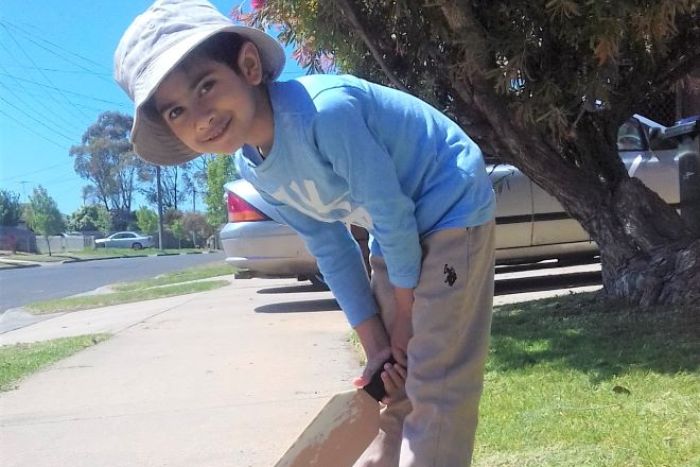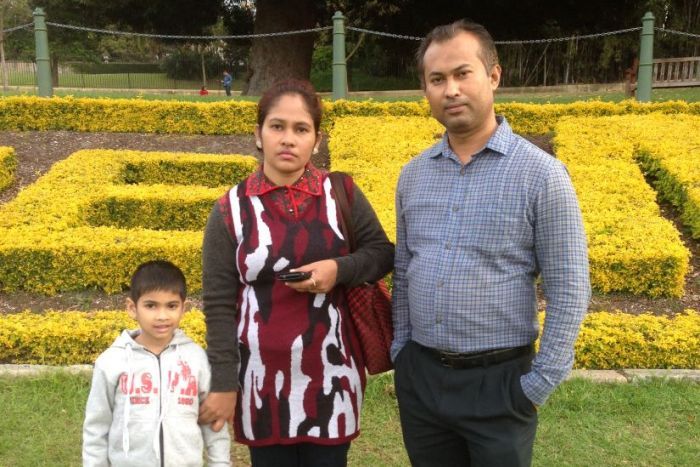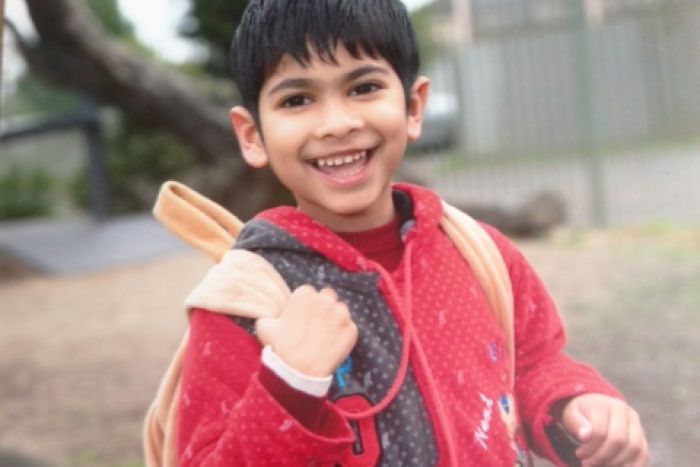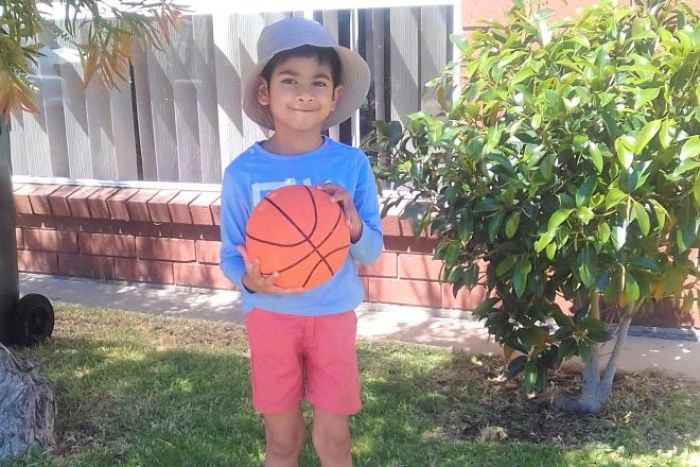The Geelong family facing deportation from Australia due to their son's 'minor' disability

When five-year-old Adyan bin Hasan arrives at his local library he grabs his mother's hand and drags her towards the door.
"Come, come, come," he says excitedly — he can't wait to get inside.
Adyan is fluent in Bengali and after starting kindergarten this year, his mother Rebaka Sultana said his thirst for English had grown by the day.
"He's interested very much in going to the school and attending the local library programs," she said.
"If the baby is not eager, then he can't learn but he is so eager that he is getting it."
But the smiling, playful child is facing the prospect of being refused permanent residency in Australia due to a minor disability in his left hand.

Around the time of Adyan's birth, at a hospital in Geelong, he suffered a stroke on the right side of his brain which resulted in weakness in his left hand.
It went unrecognised for months but the disability meant that Adyan did not meet the health criteria to be granted permanent residency when the family applied.
The family's only hope to remain in Australia now lies with intervention by Immigration Minister David Coleman.
Residency rejected due to public health cost risk
In a letter to the Commonwealth Medical Officer, paediatrician Peter Vuillermin said Adyan had made "superb progress" and "functions very well".
Professor Vuillermin said Adyan would be able to attend mainstream schools and would only require "limited physiotherapy and occupational therapy".
"Adyan has mild cerebral palsy that primarily manifests as weakness and incoordination of his left arm," the letter stated.
"I expect that the level of input required will be relatively minimal and that he will continue to do very well."
Adyan's father, Md Mahedi Hasan Bhuiyan, moved to Australia in 2011 to complete a PhD in engineering at Deakin University.
Dr Rebaka was a medical doctor in Bangladesh and is now preparing to sit an exam which would allow her to practise in Australia.

The pair married in 2012 and applied for permanent residency through the skilled migration program in 2015.
But it was rejected after Adyan failed to meet the health requirement test — a test designed to ensure public health costs are not unduly increased by visa holders.
The family is now fighting to have the decision overturned.
Dr Rebaka said the disability only restricted her son from picking up heavy things or climbing.
"He plays football, cricket very nicely, he walks around everything fine, communicates with other babies, but he just has a little weakness in his hand," she said.
"He can hold the books, the pen, he can open the pen lid, and hold the mobile and tablet and he does all his daily activities nicely.
"His disability is minor, actually, it is very minor."
Fear of discrimination in Bangladesh
Dr Mahedi said the long appeal process and the wait for ministerial intervention had caused a lot of stress for the family.
He said he feared his son would face severe social discrimination if he returned to Bangladesh.
"No one [would] want to socialise with him," Dr Mahedi said.
"They think that if the other child meets with him it will be contagious.
"They also think that disability happens mainly because of the curse on the parents."

Dr Mahedi said he had been offered a research position at Deakin University if the family's permanent residency visa was granted, and his wife hoped to work as a GP.
Dr Rebaka said the family's qualifications would see them contribute significantly to Australian society and hoped the minister would act "generously".
A Home Affairs Department spokesperson said while they did not comment on individual cases, all visa applicants and accompanying family members undergo assessments "to determine whether ongoing care for the individual would likely result in significant costs to the Australian community".
"Where an individual case does not meet the legislated health requirement, an application can be made for Ministerial Intervention," the spokesperson said.
"Individuals and families may remain in Australia while their case is being considered."
An information leaflet sent to the family said: "Generally, the Minister will only [overturn a decision] if there are compelling, compassionate or humanitarian considerations."

-------- From ABC NEWS
https://www.abc.net.au/news/2019-11-01/sons-minor-disability-puts-geelong-family-at-risk-of-deportation/11657474








